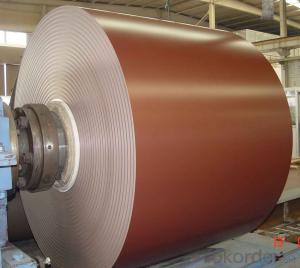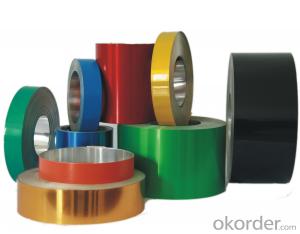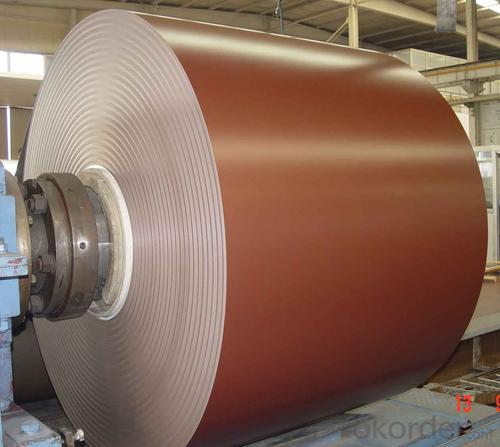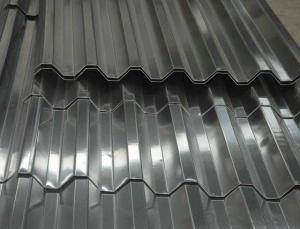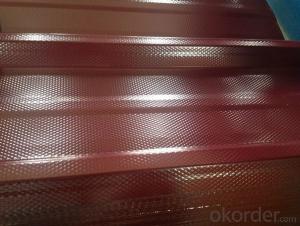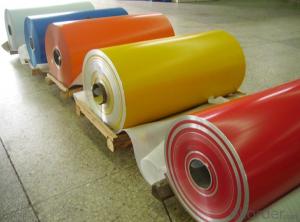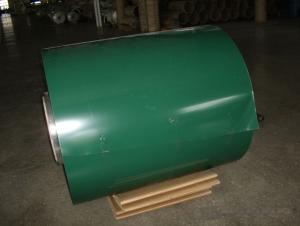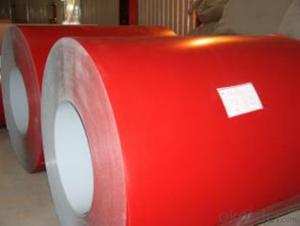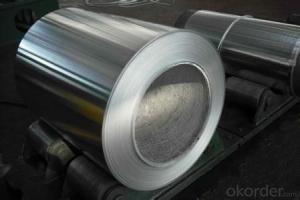7075 Aluminum Coil - Alloy 3003 PE Coated Aluminium Roll for Roofing/Ceiling/Gutter/Decoration
- Loading Port:
- Shanghai
- Payment Terms:
- TT OR LC
- Min Order Qty:
- 2 m.t.
- Supply Capability:
- 70000 m.t./month
OKorder Service Pledge
OKorder Financial Service
You Might Also Like
Specification
Alloy PE Coated Aluminium Roll for Roofing/Ceiling/Gutter/Decoration
Specification
Grade
| 1000 Series: 1050 1060 1070 1100 1200 1235 etc. 3000 Series: 3003 3004 3005 3104 3105 3A21 etc. 5000 Series: 5005 5052 5083 5086 5154 5182 5251 5754 etc. 6000 Series: 6061 6063 6082 6A02 etc. 8000 Series: 8006 8011 8079 etc. |
Thickness | 0.05~10mm |
Width | <1600mm< span=""> |
Color | Metallic, Solid, RAL or by customer requirements |
Coating paint: | PVDF(Polyvinylidene Fluoride), PE(Polyester ) |
Coating thickness | as per customer’s request |
Gloss | 10-90%(EN ISO-2813:1994) |
Total coating thick | Polyester18~25micron(EN ISO-2360:1995) PVDF25 ~35micron(EN ISO-2360:1995) |
Coating hardness | 2H |
Protective film | PVC film, Colorless transparent or White-black |
Adhesion | 5B (EN ISO-2409:1994) |
Impact resistance | No cracking and peeling (A.S.T.M D2794-1993) |
Flexibility (T-bend) | 0T- 2T |
Temper | H16, H18, H24, H26, H26 |
Certification | ISO9001:2000, CE, SGS |
Coil's standard diameter | 1100mm |
Inner Diameter | 405mm/505mm |
Coil's standard weight | 2000kgs |
Payment | L/C ,T/T |
Packing
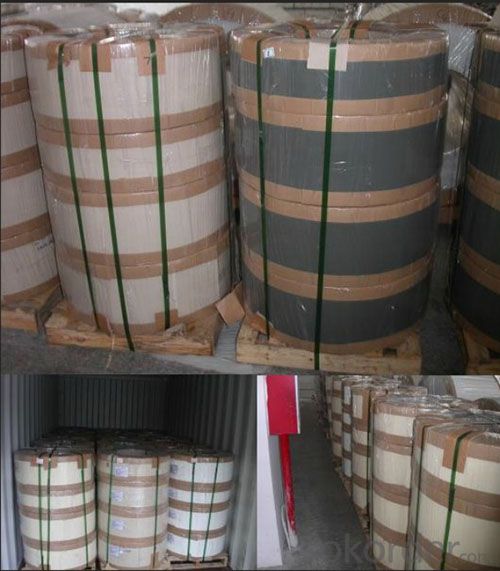
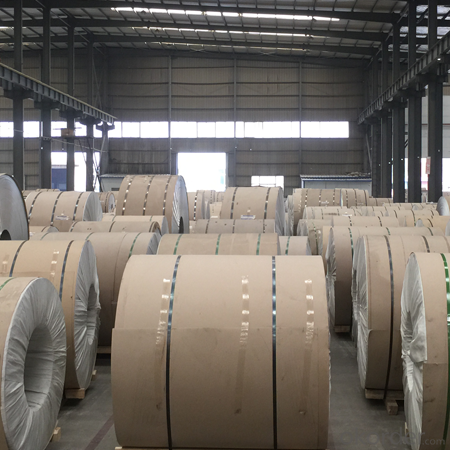
FAQ
Q: How can I request a product sample? A: The samples are free but freight should be collected. Please send sample list and courier account number by email.
Q: How can I request a product catalog? A: The hard copies of catalogs are free but freight should be collected. Please send courier account number by email. You are suggested to request a PDF catalog.
Q: Wha's your payment terms? A: One is T/T 30% before production and 70% against copy of B/L; the other is Irrevocable L/C 100% at sight.
Q: What's your trade terms? A: FOB, CNF(CFR), CIF, EXW.
Q: How long is the quality guarantee? A: All of our products have a period of quality guarantee since time of shipment. Please contact your salesman for more details, as different products enjoy different time of guarantee
- Q: What are the different coil diameters available for aluminum coils?
- The coil diameters for aluminum coils can differ based on specific needs and applications. Typically, aluminum coils are offered in various diameters to accommodate different requirements. These diameters can vary from a few inches to several feet. Manufacturers and suppliers may have different options for coil diameters. It is crucial to consider that the chosen diameter will affect factors like coil weight, handling, and compatibility with machinery or equipment. Therefore, it is recommended to consult with suppliers or manufacturers to determine the available coil diameter options for aluminum coils based on intended use and requirements.
- Q: This question asks for methods to prevent rust formation on aluminum coils during indoor storage.
- <p>To prevent rust on aluminum coils when storing them indoors, ensure that the storage area is clean and dry. Keep the coils away from moisture and humidity, as these can cause oxidation. Use protective wrapping or coverings to shield the coils from dust and airborne moisture. Regularly inspect the coils for any signs of condensation or dampness and address these promptly. Maintain proper ventilation in the storage area to reduce humidity levels. Additionally, avoid stacking the coils directly on the ground; use pallets or racks to elevate them, which helps in air circulation and prevents contact with moisture that could be present on the floor.</p>
- Q: What are the different protective coatings available for aluminum coils?
- Some of the different protective coatings available for aluminum coils include polyester, PVDF (polyvinylidene fluoride), epoxy, and acrylic coatings. These coatings help to enhance the durability and resistance of the aluminum against corrosion, UV rays, and harsh weather conditions.
- Q: This question asks for a method to compact an aluminum coil by folding it.
- <p>To fold an aluminum coil for compactness, first ensure the coil is free of sharp edges or damage. Use gloves for safety. Start by laying the coil flat. Measure and mark the desired folded length. Begin folding the coil by bringing one end towards the center, aligning the edges neatly. Continue folding back and forth, ensuring each fold is tight and even. Use a rubber mallet or similar tool to secure the folds, if necessary. For larger coils, consider using a mechanical folder or press to apply even pressure. Always work in a well-ventilated area and follow safety guidelines to prevent injury.</p>
- Q: I own a pistol with an aluminum frame. If I were to store it away for a long time, would I need to bother wiping oil over the aluminum surfaces in addition to the steel surfaces? If it helps, there is a dark grey sort of finish on the aluminum.
- no aluminum does not rust anything steel you should probably oil
- Q: I have the Samp;W Mamp;P 15 rifle and was wondering if I should oil the exterior of the rifle. The receiver material is 7075 T6 Aluminum and the finish is Hard Coat Black Anodized (specifications on website). Any advice or tips are welcome! Thanks!
- aluminum is different from steel, it does rust (oxidize) but once it does the oxidation protects it from further rust! unless freshly scratched or gouged, all aluminum surfaces are covered wit ha near-invisible layer of aluminum oxide (rust) that acts like a barrier against further corrosion. anodizing is a type of aluminum finish that strengthens the natural barrier of aluminum oxide to make it more acid resistant. no oiling is necessary to keep anodized finishes in good shape. the only stuff you have ot watch out for with aluminum is mercury. mercury will destroy aluminum beyond repair. but since the mercury bans about 20 years ago accidentally spills of mercury on your gun isn't very likely... mercuric corrosive primer soot will not damage your gun.
- Q: Are aluminum coils applicable in the manufacturing process of automobiles?
- <p>Yes, aluminum coils are widely used in automobile manufacturing. They are utilized in various components such as engine parts, body panels, and wheels due to their lightweight, corrosion resistance, and strength. Aluminum's recyclability and energy efficiency also make it an environmentally friendly choice for the automotive industry.</p>
- Q: How do aluminum coils contribute to the aesthetics of a building?
- Aluminum coils can significantly contribute to the aesthetics of a building due to their versatility, durability, and aesthetic appeal. Firstly, aluminum coils can be easily shaped, cut, and formed into various architectural designs, allowing for greater flexibility in achieving the desired aesthetic of a building. Whether it is a sleek and modern look or a more traditional and ornate design, aluminum coils can be customized to meet the specific aesthetic requirements of a project. Additionally, aluminum coils come in a wide range of colors and finishes, enabling architects and designers to choose from a diverse palette to match the overall theme or style of a building. The option to select from different shades, textures, and patterns allows for endless possibilities in creating visually appealing facades and exteriors. Furthermore, aluminum is known for its durability and resistance to corrosion, making it an ideal material for architectural applications. The use of aluminum coils in a building ensures that the exterior surfaces will maintain their aesthetic appeal for an extended period, with minimal maintenance required. This durability makes aluminum coils a cost-effective choice for maintaining the aesthetics of a building in the long run. Moreover, aluminum coils can contribute to the energy efficiency of a building. They possess excellent thermal conductivity, allowing them to effectively dissipate heat and reduce the energy consumption required for temperature control. This energy-saving feature not only enhances the sustainability of a building but also adds to its overall aesthetic appeal by incorporating environmentally conscious design elements. In conclusion, aluminum coils contribute to the aesthetics of a building by providing flexibility in design, a wide range of color and finish options, durability, and energy efficiency. These qualities allow architects and designers to create visually appealing structures that align with the desired aesthetic vision while ensuring long-lasting beauty and sustainability.
- Q: What are the factors that affect the price of aluminum coils?
- The price of aluminum coils can be affected by various factors. One of the main factors is the global supply and demand for aluminum. In the case of an aluminum shortage, the price of aluminum coils is likely to rise. Conversely, if there is an excess supply of aluminum, the price may decrease. Another factor that can impact the price of aluminum coils is the cost of raw materials. Aluminum is obtained from bauxite, and the cost of mining and extracting bauxite can fluctuate depending on factors such as labor expenses, energy prices, and government regulations. Any changes in these factors can affect the overall production cost of aluminum, which in turn can influence the price of aluminum coils. Transportation expenses also play a role in determining the price of aluminum coils. Aluminum is often transported over long distances, and the cost of shipping or trucking can vary based on fuel prices, distance, and other logistical factors. Higher transportation costs can contribute to the overall price of aluminum coils. Currency exchange rates can also have an impact on the price of aluminum coils. Aluminum is traded on global markets, and fluctuations in exchange rates can affect the cost of importing or exporting aluminum. If the currency in which aluminum is traded strengthens against other currencies, the price of aluminum coils may increase. Lastly, market competition can influence the price of aluminum coils. When there are multiple suppliers of aluminum coils, they may compete with each other to attract customers. This competition can result in price fluctuations as suppliers try to offer competitive prices to secure buyers. To sum up, the price of aluminum coils can be influenced by factors such as global supply and demand, the cost of raw materials, transportation costs, currency exchange rates, and market competition. Understanding these factors can help businesses and consumers anticipate and respond to changes in the price of aluminum coils.
- Q: Are there any fire safety considerations when using aluminum coils?
- When using aluminum coils, fire safety considerations must be taken into account. This is because aluminum is a highly flammable material, and if not handled and installed correctly, it can present a fire hazard. To minimize the risk of fire, it is crucial to install the aluminum coils in a manner that reduces the chance of fire, such as using appropriate insulation and avoiding direct contact with other flammable substances. Furthermore, regular maintenance and inspections should be conducted to detect any potential problems or signs of overheating that may result in a fire. Adhering to fire safety protocols and guidelines, like having a fire extinguisher nearby and ensuring adequate ventilation, can also assist in mitigating the fire risk associated with aluminum coils.
Send your message to us
7075 Aluminum Coil - Alloy 3003 PE Coated Aluminium Roll for Roofing/Ceiling/Gutter/Decoration
- Loading Port:
- Shanghai
- Payment Terms:
- TT OR LC
- Min Order Qty:
- 2 m.t.
- Supply Capability:
- 70000 m.t./month
OKorder Service Pledge
OKorder Financial Service
Similar products
Hot products
Hot Searches
Related keywords
